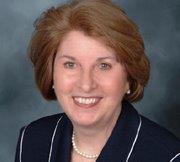
A Short-lived Retirement
Call it the anti-retirement movement – older Americans who are either resisting the lure of retirement or have eagerly exited a short-lived retirement to return to work.
Squared Away tracked down three people who fit the profile of the type of people research has shown are most likely to keep working into their mid-60s, 70s, or even their 80s: college-educated go-getters who find unlimited travel or golf a tad boring.
To be sure, these are the lucky Americans who have financial and other advantages that many older people lack. The extra money they receive from working, even if it’s part-time, isn’t their primary motivation, though it’s nice to have. And they have the luxury of crafting their own work schedules, which also allow them to enjoy their families or philanthropy.
Two of these older Americans – Roger Parker, a retired minister (the second musician from right in photo above), and Deborah Hope, a financial industry veteran – are profiled below. One more profile will appear in Thursday’s blog.
Roger Parker
During Roger Parker’s long career as a United Methodist minister, what never got the attention it deserved was one of his lifelong passions: playing jazz standards on the piano – “Quiet Nights of Quiet Stars,” “Take the A Train,” “Satin Doll,” “Ain’t Misbehavin’,” and “The Girl from Ipanema.”
Parker retired from full-time work at his church in Franklin, Tennessee, outside Nashville, after years of saving and preparation for a retirement funded by his church pension and 401(k) account. He signed up for weekly music lessons that got him in shape to join two local jazz groups: Wingtip, which occasionally picks up a paid gig, and Chesser Cats, which performs more frequently – and for free – at local nursing homes.
The 71-year-old Parker didn’t abandon his religious calling. Though officially “retired,” he continues to teach a Sunday school class for fourth-graders and leads worship services for nursing home residents. In the best of times, his nursing home ministry and music flow together seamlessly, such as when he works with the elderly as part of their memory therapy.
Music, he explains, “is the best way to connect with people with dementia. People who couldn’t carry on a conversation with you could remember all the words to ‘You are my Sunshine,’ ‘I’ve been Working on the Railroad,’ or ‘Take Me Out to the Ballgame.’ ” When residents hear the words to their old favorites, he added, “they absolutely come to life.”
Just over a year ago, the senior pastor at his former church asked Parker to return to work part-time. He and his wife didn’t really need the extra money. In addition to his retirement income, his wife, a former nurse, works part-time as a massage therapist. But Parker was tempted back to work by the ability to write his own job description.
He now devotes about 15 hours a week to a position centered on “keeping old people connected” to the church, typically by visiting them in their homes. His new schedule means it’s easier for the couple to find time to visit their children and grandchildren, who live in Pittsburgh and Michigan.
But Parker’s reason for returning to work is similar to the reason cited by other older workers.
“I just realized that in order to have a sense of well-being, I needed to be engaged in something that made a difference to people,” he said. “The whole idea of retirement and kicking back and not doing anything productive or useful was not the way I was wired.”

Deborah Hope
After some 30 years as a top financial executive – working in institutional sales and research for global companies such as Sun Life Financial in Canada, Credit Lyonnais, PaineWebber, and Gruntal & Co., to name just a few – Deborah Hope began to suspect there was more to life than a high-powered career.
On Sept. 11, 2001, that message was slammed home during the terrorist attack on the World Trade Center, which was across the street from her then-employer’s Manhattan headquarters.
She shut down the firm’s Boston office, which she had established and was heading at the time, and sent her employees home. “I got my kids and hugged them,” she said. One year after the attacks, she was retired.
That first retirement didn’t stick. She returned to work a few years later, when a friend at Solomon Smith Barney asked her to join the company. Working on the retail side of Wall Street, she said, “wasn’t very satisfying.” So in 2006, after her mother and father had died within months of each other, Hope retired a second time – sort of.
Today, the 64-year-old no longer officially works full time. But she runs an executive coaching business, Hope Associates; works with her husband in the Charles Hope Companies to renovate low-income housing on Boston’s North Shore; and sits on boards such as the Merrimack Valley YMCA in Massachusetts and serves as an overseer and women’s health advocate at the Brigham and Women’s Hospital in Boston. She’s also a member of the Boston Club, which works to place qualified women on U.S. and international corporate boards.
“65 used to be a magical retirement age, but we’re all much more fit, more brain conscious,” she said. “My generation wants to keep growing.”
Continuing to work is also partly financial. Her two children are still in school, one in prep school and one going off to college. But Hope has also crafted a new life that gives her more balance, more work with non-financial rewards, and more time in her still-full schedule to spend time with her children.
“I’m not just jumping on the commuter rail or dashing in my car to Boston and back,” she said. “I am looking at life through a different lens.”






